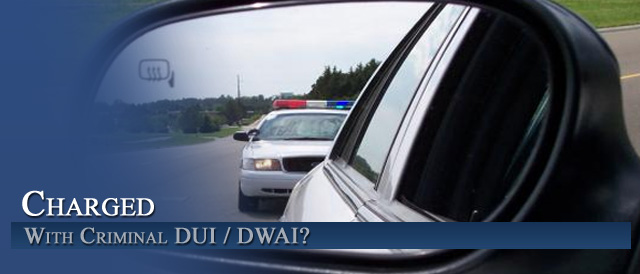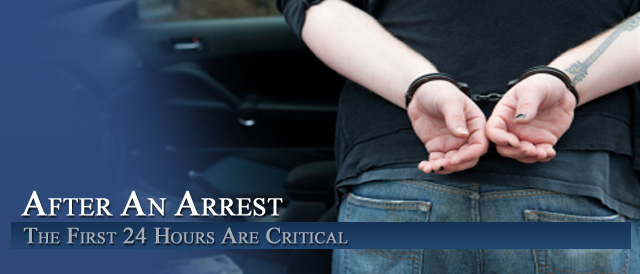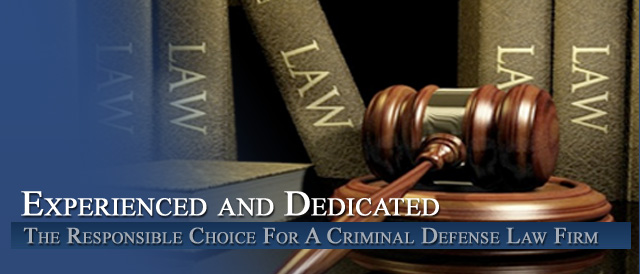




Colorado DUI – DWAI – DUID Penalties And Sentencing 42-4-1307
By Colorado DUI – DWAI – DUID Criminal Defense Lawyer – H. Michael Steinberg
Colorado DUI – DWAI -DUID Penalties And Sentencing – Proving Prior Alcohol Driving Convictions In Court – can make the difference between a jail sentence and no jail at all. I am often asked by clients – how does the DA prove I have prior DUI – DWAI- or DUID convictions?
What is the law in Colorado in this area?
The Colorado law is CRS 42-4-1307(9) Previous convictions and here is what it says – broken out by me and with analysis in brackets HMS…]
Colorado DUI – DWAI – DUID Penalties And Sentencing 42-4-1307 – CRS 42-4-1307(9) Previous convictions.
….
- (a) For the purposes of subsections (5) and (6) of this section, a person shall be deemed to have a previous conviction for DUI, DUI per se, DWAI, habitual user, vehicular homicide pursuant to section 18-3-106(1)(b), C.R.S., vehicular assault pursuant to section 18-3-205(1)(b), C.R.S., aggravated driving with a revoked license pursuant to section 42-2-206(1)(b) (I) (A) or (1)(b) (I) (B), or driving while the person’s driver’s license was under restraint pursuant to section 42-2-138(1)(d),
IF….
[HMS – The next sections says the prior alcohol related driving offense can arise in Colorado at ANY time (old or new) in ANY other state, or in any United States territory].
- …the person has been convicted under the laws of this state or under the laws of any other state, the United States, or any territory subject to the jurisdiction of the United States,
[HMS – The next section means – the conviction has to be the equivalent charge of an alcohol related conviction – if the crime was committed in Colorado.]
- ..of an act that, if committed within this state, would constitute the offense of DUI, DUI per se, DWAI, habitual user, vehicular homicide pursuant to section 18-3-106(1)(b), C.R.S., vehicular assault pursuant to section 18-3-205 (1)(b), C.R.S., aggravated driving with a revoked license pursuant to section 42-2-206(1)(b) (I) (A) or (1)(b) (I) (B), or driving while the person’s driver’s license was under restraint pursuant to section 42-2-138 (1)(d).
[HMS – This next section sets up the standard of proof – the evidence – necessary to actually prove the prior conviction existed. The proof is prima facie – a basic case is made out when.. a matter appears to be evident from the facts. ..Wikipedia describes prima facie as denoting “evidence that – unless rebutted – would be sufficient to prove a particular proposition or factâ€].
- (b) (I) For sentencing purposes concerning convictions for second and subsequent offenses, prima facie proof of a person’s previous convictions shall be established when:
[HMS – Section A – If the DA and the defendant agree that there is a one or more prior convictions – this is the easiest case and the most troublesome for the Colorado Criminal Defense Lawyer – because most of the time – the Judge and the DA ask the defendant to incriminate themselves – and they must answer truthfully or risk adverse consequences for lying – later to be established by the Defendant’s criminal history – see discussion below.]
- (A) The prosecuting attorney and the person stipulate to the existence of the prior conviction or convictions;
[HMS – Section B – Here the DA shows a copy of the Defendant’s driving history to the Judge – driving histories are notoriously unreliable – and should not be accepted at face value by the defense lawyer unless clear on their face and the Defendant conforms the conviction or convictions.]
- (B) The prosecuting attorney presents to the court a copy of the person’s driving record provided by the department of revenue or by a similar agency in another state, which record contains a reference to the previous conviction or convictions OR
[HMS – Section C – Here conclusive proof – in the form of an authenticated copy of the conviction is presented to the Judge – tough to defend against.]
- (C) The prosecuting attorney presents an authenticated copy of the record of the previous conviction or judgment from a court of record of this state or from a court of any other state, the United States, or any territory subject to the jurisdiction of the United States.
[HMS – Section II – gives the DA -prosecutor the right to delay the sentencing to obtain the proof the State needs to request the harsher sentence – if the Defendant denies the prior conviction.]
- (II) The court shall not proceed to immediate sentencing if the prosecuting attorney and the person have not stipulated to previous convictions or if the prosecution has requested an opportunity to obtain a driving record or a copy of a court record. The prosecuting attorney shall not be required to plead or prove any previous convictions at trial.
H. Michael Steinberg’s take:
This is not an area the Colorado Criminal Defense Lawyer should run from. If the client disputes a prior conviction – and out of state records – by definition are often poorly maintained and ambiguous – especially if they are 10 or more years old – raising constitutional issues of full faith and credit..the lawyer should make the State of Colorado PROVE IT.
The impact of a SECOND or THIRD OR MORE Convictions is very serious..
Here is the LAW:
� 42-4-1307. Penalties for traffic offenses involving alcohol and drugs
(5) Second offenses.
….(a) Except as otherwise provided in subsection (6) of this section, a person who is convicted of DUI, DUI per se, or DWAI who, at the time of sentencing, has a prior conviction of DUI, DUI per se, DWAI, vehicular homicide pursuant to section 18-3-106 (1) (b), C.R.S., vehicular assault pursuant to section 18-3-205 (1) (b), C.R.S., aggravated driving with a revoked license pursuant to section 42-2-206 (1) (b) (I) (A) or (1) (b) (I) (B), or driving while the person’s driver’s license was under restraint pursuant to section 42-2-138 (1) (d), shall be punished by:
(I) Imprisonment in the county jail for at least ten consecutive days but no more than one year; except that the court shall have discretion to employ the sentencing alternatives described in section 18-1.3-106, C.R.S.
During the mandatory ten-day period of imprisonment, the person shall not be eligible for earned time or good time pursuant to section 17-26-109, C.R.S., or for trusty prisoner status pursuant to section 17-26-115, C.R.S.; except that the person shall receive credit for any time that he or she served in custody for the violation prior to his or her conviction.
Colorado DUI – DWAI – DUID Penalties And Sentencing 42-4-1307 –
(II) A fine of at least six hundred dollars but no more than one thousand five hundred dollars, and the court shall have discretion to suspend the fine;
(III) At least forty-eight hours but no more than one hundred twenty hours of useful public service, and the court shall not have discretion to suspend the mandatory minimum period of performance of the service; and
(b) If a person is convicted of DUI, DUI per se, or DWAI and the violation occurred less than five years after the date of a previous violation for which the person was convicted of DUI, DUI per se, DWAI, vehicular homicide pursuant to section 18-3-106 (1) (b), C.R.S., vehicular assault pursuant to section 18-3-205 (1) (b), C.R.S., aggravated driving with a revoked license pursuant to section 42-2-206 (1) (b) (I) (A) or (1) (b) (I) (B), or driving while the person’s driver’s license was under restraint pursuant to section 42-2-138 (1) (d),…
(IV) A period of probation of at least two years, which period shall begin immediately upon the commencement of any part of the sentence that is imposed upon the person pursuant to this section, and a suspended sentence of imprisonment in the county jail for one year, as described in subsection (7) of this section; except that the court shall not sentence the defendant to probation if the defendant is sentenced to the department of corrections but shall still sentence the defendant to the provisions of paragraph (b) of subsection (7) of this section. The defendant shall complete all court-ordered programs pursuant to paragraph (b) of subsection (7) of this section before the completion of his or her period of parole.
[HMS – This next portion of the law is IMPORTANT – it means that none of the alternatives listed in this law � 18-1.3-106. (County jail sentencing alternatives – work, educational, and medical release – home detention – day reporting) – are available to the judge at sentencing]
…the court shall not have discretion to employ any sentencing alternatives described in section 18-1.3-106, C.R.S., during the minimum period of imprisonment described in subparagraph (I) of paragraph (a) of this subsection (5); except that a court may allow the person to participate in a program pursuant to section 18-1.3-106 (1) (a) (II), (1) (a) (IV), or (1) (a) (V), C.R.S., only if the program is available through the county in which the person is imprisoned and only for the purpose of:
(I) Continuing a position of employment that the person held at the time of sentencing for said violation;
(II) Continuing attendance at an educational institution at which the person was enrolled at the time of sentencing for said violation; or
(III) Participating in a court-ordered level II alcohol and drug driving safety education or treatment program, as described in section 42-4-1301.3(3) (c) (IV).
(c) Notwithstanding the provisions of section 18-1.3-106(12), C.R.S., if, pursuant to paragraph (a) or (b) of this subsection (5), a court allows a person to participate in a program pursuant to section 18-1.3-106, C.R.S., the person shall not receive one day credit against his or her sentence for each day spent in such a program, as provided in said section 18-1.3-106(12), C.R.S.
(6) Third Or Subsequent Offenses
…. (a) A person who is convicted of DUI, DUI per se, or DWAI who, at the time of sentencing, has two or more prior convictions of DUI, DUI per se, DWAI, vehicular homicide pursuant to section 18-3-106 (1) (b), C.R.S., vehicular assault pursuant to section 18-3-205 (1) (b), C.R.S., aggravated driving with a revoked license pursuant to section 42-2-206 (1) (b) (I) (A) or (1) (b) (I) (B), or driving while the person’s driver’s license was under restraint pursuant to section 42-2-138 (1) (d) shall be punished by: (I) Imprisonment in the county jail for at least sixty consecutive days but no more than one year.
During the mandatory sixty-day period of imprisonment, the person shall not be eligible for earned time or good time pursuant to section 17-26-109, C.R.S., or for trusty prisoner status pursuant to section 17-26-115, C.R.S.; except that a person shall receive credit for any time that he or she served in custody for the violation prior to his or her conviction. During the mandatory period of imprisonment, the court shall not have any discretion to employ any sentencing alternatives described in section 18-1.3-106, C.R.S.; except that the person may participate in a program pursuant to section 18-1.3-106(1) (a) (II), (1) (a) (IV), or (1) (a) (V), C.R.S., only if the program is available through the county in which the person is imprisoned and only for the purpose of: (A) Continuing a position of employment that the person held at the time of sentencing for said violation;
(B) Continuing attendance at an educational institution at which the person was enrolled at the time of sentencing for said violation; or
(C) Participating in a court-ordered level II alcohol and drug driving safety education or treatment program, as described in section 42-4-1301.3(3) (c) (IV);
(II) A fine of at least six hundred dollars but no more than one thousand five hundred dollars, and the court shall have discretion to suspend the fine;
(III) At least forty-eight hours but no more than one hundred twenty hours of useful public service, and the court shall not have discretion to suspend the mandatory minimum period of performance of the service; and
(IV) A period of probation of at least two years, which period shall begin immediately upon the commencement of any part of the sentence that is imposed upon the person pursuant to this section, and a suspended sentence of imprisonment in the county jail for one year, as described in subsection (7) of this section; except that the court shall not sentence the defendant to probation if the defendant is sentenced to the department of corrections, but shall still sentence the defendant to the provisions of paragraph (b) of subsection (7) of this section. The defendant shall complete all court-ordered programs pursuant to paragraph (b) of subsection (7) of this section before the completion of his or her period of parole.
(b) Notwithstanding the provisions of section 18-1.3-106(12), C.R.S., if, pursuant to paragraph (a) of this subsection (6), a court allows a person to participate in a program pursuant to section 18-1.3-106(1) (a) (II), (1) (a) (IV), or (1) (a) (V), C.R.S., the person shall not receive one day credit against his or her sentence for each day spent in such a program, as provided in said section 18-1.3-106(12), C.R.S.
Colorado DUI – DWAI – DUID Penalties And Sentencing 42-4-1307
Denver Colorado Criminal Defense Lawyer
The Law Offices of H. Michael Steinberg, in Denver, Colorado, provide criminal defense clients with effective, efficient, intelligent and strong legal advocacy. We can educate you and help you navigate the stressful and complex legal process related to your criminal defense issue.
H. Michael Steinberg, is a Denver, Colorado criminal defense lawyer who will provide you with a free initial case consultation to evaluate your legal issues and to answer your questions with an honest assessment of your options.
Helping Clients To Make Informed Decisions In the Defense of Colorado Criminal Cases. Colorado Defense Lawyer H. Michael Steinberg provides solid criminal defenses for clients throughout the Front Range of Colorado – including the City and County courts of Adams County, Arapahoe County, City and County of Boulder, City and County of Broomfield, City and County of Denver, Douglas County, El Paso County – Colorado Springs, Gilpin County, Jefferson County, Larimer County, and Weld County,…. and all the other cities and counties of Colorado along the I-25 Corridor… on cases involving … Colorado DUI – DWAI – DUID Penalties And Sentencing 42-4-1307.
Other Articles of Interest:
- A Colorado Comprehensive DUI – DWAI Penalties Sentencing Chart
- Colorado’s Habitual Traffic Offender Law – CRS 42-2-206 – Driving After Revocation Prohibited – DAJP
- Colorado DUI Law – DUI Probation Violations – Revocation Of Probation
- Understanding Colorado’s Felony DUI Law – Effective Date – August 5, 2015
- To Understand Colorado DUI – DWAI – DUID Probation Sentencing – First Read The Law













